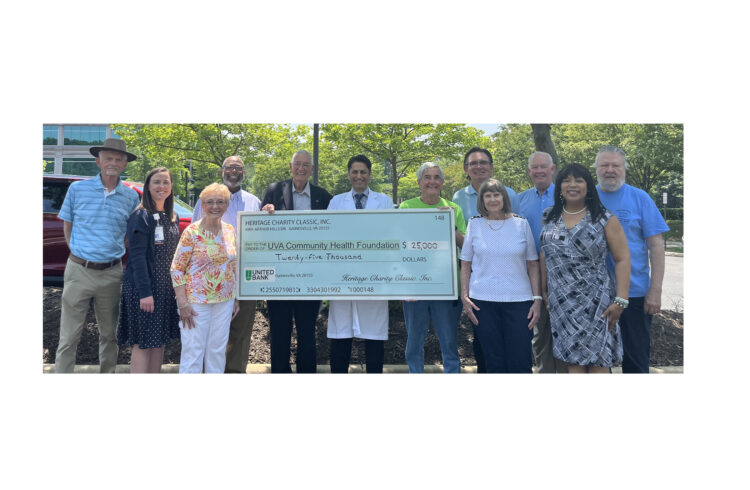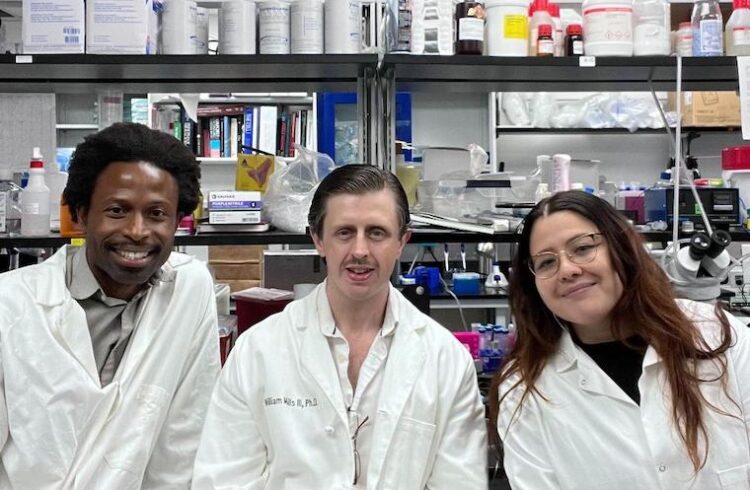
Researcher Carrie A. Cowardin, PhD, was recruited to UVA specifically for her expertise in the microbiome and how it affects human health.
A new tool developed at the School of Medicine will help doctors and scientists better understand and overcome childhood undernutrition that contributes to almost half of all deaths of children under 5.
The research model created by UVA’s Carrie A. Cowardin, PhD, and colleagues provides a more sophisticated way to study the effects of undernutrition on the microbiome, the microbes that naturally live inside the gut, and, in turn, on growth and the immune system.
Scientists routinely study the many complex interactions within the microbiome by taking samples from the human microbiome and moving them into lab mice. But Cowardin and colleagues found that they could significantly improve the effectiveness of that model by introducing the microbes when the mice were very young, before they had been weaned. This new model of “intergenerational colonization,” they determined, better mimicked the effect of undernutrition during early childhood.
“We believe this new model will help us investigate many of the major challenges facing undernourished children, including higher rates of infection and changes in cognitive development,” said Cowardin, part of UVA’s Department of Pediatrics. “Our current studies are using this system to identify specific microbes that impact development, with the goal of using these microbes as therapies to promote healthy growth. ”
Undernutrition and the Microbiome
Using Cowardin’s new model, the UVA researchers found that unweaned mice that were given microbes derived from children with impaired growth also suffered stunted growth. Further, the young mice developed immune system responses similar to those seen in human children. But when the microbes were given to mice later in life, the effects were much less similar to what was seen in humans.
That suggests Cowardin’s new approach offers a better way to study childhood undernutrition. Further, the results align nicely with prior research suggesting that infancy is a critical period that shapes the health and strength of the immune system throughout life, the researchers say.
The new model, Cowardin said, should help scientists better understand the underlying biological causes of stunted growth and other harmful effects of undernutrition in developing counties. That understanding will advance efforts to develop new approaches to prevent those effects and help children live longer, healthier lives.
“We hope this work also allows us to answer fundamental questions about how the microbiome interacts with our own cells to shape the course of development,” Cowardin said. “Growth stunting due to undernutrition is a really difficult problem facing global child health, and the lessons we learn will likely apply to many other conditions as well.”
Cowardin was recruited to UVA specifically for her microbiome expertise. She is part of UVA’s ambitious TransUniversity Microbiome Iniatitive (TUMI), which brings together researchers from across the university to explore the role of the microbiome in human health. TUMI serves as the central hub for the university’s cutting-edge microbiome research to expand our understanding of the microbiome to better treat and prevent disease.
Her lab is part of UVA Health Children’s Child Health Research Center, which fosters cutting-edge research to improve the lives of children everywhere.
About the Research
Cowardin and her collaborators have described their new model in the scientific journal Microbiome. The research team consisted of Yadeliz A. Serrano Matos, Jasmine Cano, Hamna Shafiq, Claire Williams, Julee Sunny and Cowardin. The scientists have no financial interest in the work.
The researchers were supported by National Institutes of Health grants R01 HD105729, T32 AI007496 and T32 AI055432 and by National Science Foundation LSAMP Bridge to the Doctorate Fellowship 1810762.
To keep up with the latest medical research news from UVA, subscribe to the Making of Medicine blog.



